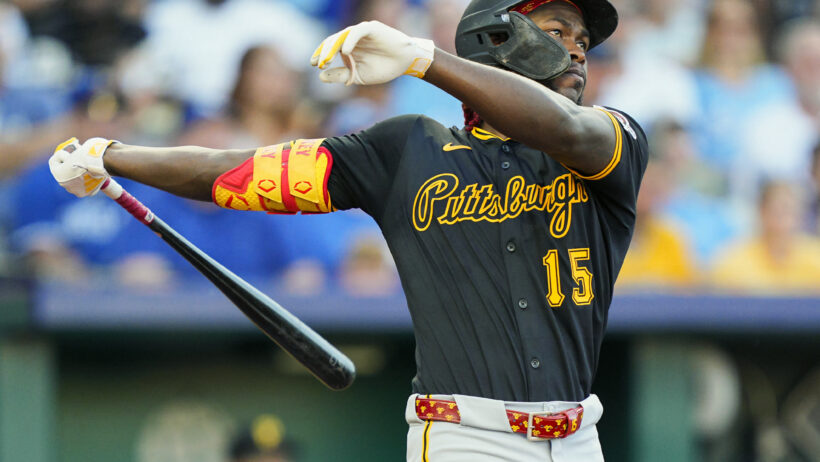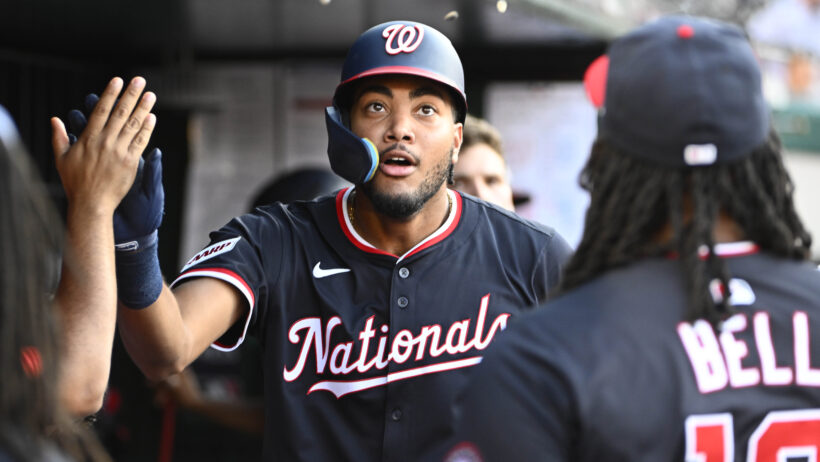The History of Sports Betting Legislation in the USA (Part I)
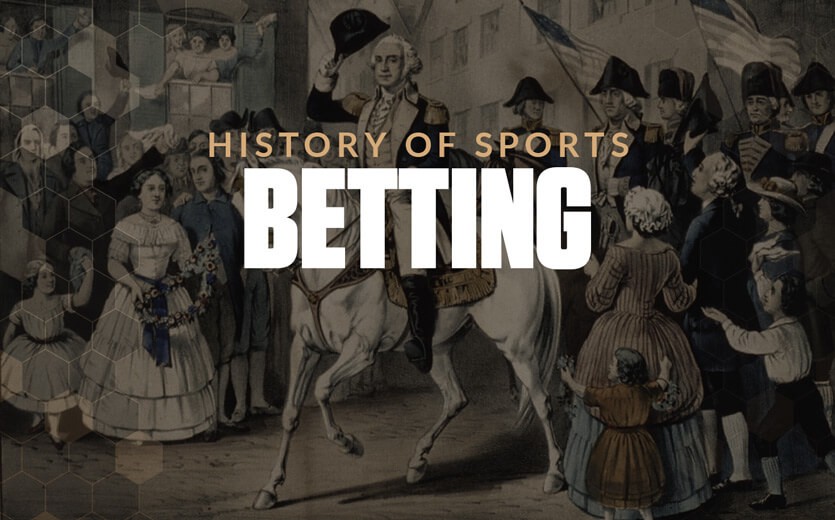
Rather than the UK’s neighborhood shops, online sportsbooks reign supreme in the US. How did we get here? Well, we have to take a long look at America’s legal relationship with the gambling industry.
In the first article of our fascinating three-part series, we take you through all the significant milestones. From the Jamestown settlement in 1607 through the legalization of gambling in Nevada in 1931, you’ll have a stronger understanding of what our forefathers designed.
1607: The First Settlers Arrive in Jamestown, Virginia
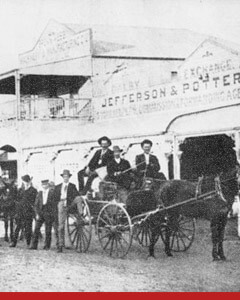
With the first American settlers came the first games of chance. Of course, attitudes towards gambling differed between Colonial American colonies, but there were no enforced large-scale restrictions on any type of gambling at this time.
In fact, many colonies used lotteries (or lottery-style) gambling games to generate capital for community projects like schools or agricultural developments.
1769: The British Crown Bans The Lottery
Lotteries were a crucial part of establishing and improving both universities and secondary schools. In fact, many of America’s most prestigious universities – including Yale, Dartmouth, Harvard, Princeton, and Columbia – were all started with the help of lottery revenue.
As such, it should come as no surprise that, when the British Crown decided to place a blanket restriction on these lotteries in 1769, it drastically increased tensions between American settlers and England.
1775-1783: Financing the War for American Independence
Believe it or not, the lottery was actually used to help finance the American Revolution. Of course, one of the main reasons the American Revolution was fought was to establish a powerful central government capable of raising an army and protecting the rights and interests of American states.
Lacking a strong tax base that was independent of England, American revolutionaries had to get creative to raise the revenue they would need to finance an army to fight the British.
Many early Americans looked to the lotteries as legitimate methods to raise revenue in the fight against the British. It was a highly successful strategy. Citizens of various states participated in the lotteries voluntarily, and didn’t consider the lottery a traditional “tax.”
It isn’t a stretch to say that, without the beneficial effect of the revolution era lotteries, the American Revolution may not have been successful.
1783: American Revolution Ends, Lottery Legally Reinstated
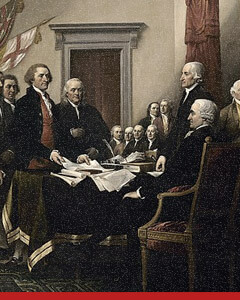
With independence from England, official restrictions on the lottery and gambling were rescinded. This was just one of many aspects of self-determination that Americans were granted following their independence from the crown.
1860: Most Gambling (Including Sports Betting) Banned
After the Revolutionary War, the American economy fell on hard times. Gambling was heavily associated with corruption (at the municipal, state, and federal levels), as well as the relative economic downturn that characterized the majority of the 19th century.
As a result of these changing attitudes, the federal government banned nearly all forms of legal gambling in 1860, specifically, gambling where the player bet against the bookmaker or the house. While this applied mainly to casino-style games, this legislation altered American attitudes towards gambling in general.
It’s important to note that betting on horse racing was excluded from this ban.
1867: Horse Racing Legal and Regulated At The State Level
Thoroughbred horses raced at the legendary Belmont Stakes for the first time in 1867, followed by Preakness Stakes in 1873, and the first Kentucky Derby debuted at the Churchill Downs track in 1875.
Most Americans didn’t view betting on horse racing the same way they saw conventional gambling or sports betting. During the 19th century, however, betting on (and attending horse races) were reserved for the elite.
1890: There Were 314 Legal Horse Racing Tracks
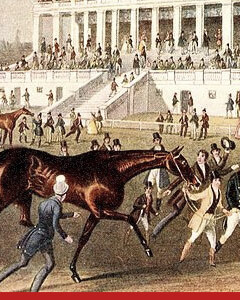
By the end of the 19th century the popularity of horse racing boomed. Within 23 years, over 300 horse racing tracks had cropped up across the United States. To put this in perspective, remember that America wasn’t nearly as large or as interconnected as it is now. Travel was long, arduous, and even dangerous when there were a mere 43 stars on the American flag.
Even if horse race betting was reserved for upper-crust society, the popularization and spread of racing tracks reflected America’s favorable attitudes toward gambling and sports betting.
1910: Nearly Every Form of Gambling Banned
By the turn of the 20th century, nearly every single form of gambling was expressly illegal in the United States. This ban included all forms of lottery, which had brought so much prosperity to American communities in decades past.
The sudden change in attitude towards gambling was also related to the broader economic climate in the United States, directly related to the Panic of 1910-1911 (which resulted in an economic downturn). During this era of populism, many developed a strong distaste for activities associated with the super-rich, including horse racing.
By 1911, only 28 horse racing tracks remained. Even though horse racing wasn’t explicitly included in this ban, the stigma around betting resulted in many notable American tracks closing their doors.
During this period, organized crime began to invest in illegitimate gambling rings.
1919: The Black Sox Scandal
The Black Sox scandal isn’t a piece of legislation, but is so integral in American sports betting history that we believe it’s essential to include on our timeline.
During the 1919 World Series, eight members of the White Sox were charged with intentionally losing the series to the Cincinnati Reds. They were incentivized to do so by noted mobster Arnold Rothstein’s sports betting syndicate.
The significance of this event soured Major League Baseball on anything to do with sports betting, and established a precedent that betting on professional sports compromised the integrity of the sports themselves.
The incident is one of the biggest conspiracies in sports history, and has also been immortalized in one of our favorite films about sports betting, Eight Men Out.
1931: Gambling Legalized To Generate New Deal Revenue
The Great Depression changed attitudes and legislation towards gambling yet again, but this time to generate revenue for the country. To raise funds for the Hoover Dam Project (which was an integral cog in FDR’s New Deal), gambling was legalized in Nevada.
This legislation overturned the existing ban on all forms of gambling where bettors bet against the house. Games like Poker, Slots, Blackjack, Roulette, and Faro were all legalized.
Desperate times for the American economy pushed a major change in attitudes towards gambling.
Legislation Shaped How We Bet on Sports
These historic pieces of gambling legislation set the stage for the eventual federal legalization of sports betting in the United States.
In the second installment of our sports betting legislation series, we’ll dive into the legislation that led to the establishment of the first brick and mortar sportsbook in Vegas (and much more)!

Evergreen Manager; Sportsbook Expert
Following a sports journalism career with his work appearing in outlets like theScore, The Province, and VICE Sports, Patrick moved into the world of content marketing to bridge the gap between great writing and SEO success. He’s brought that same mindset to lead evergreen content efforts at SBD.

